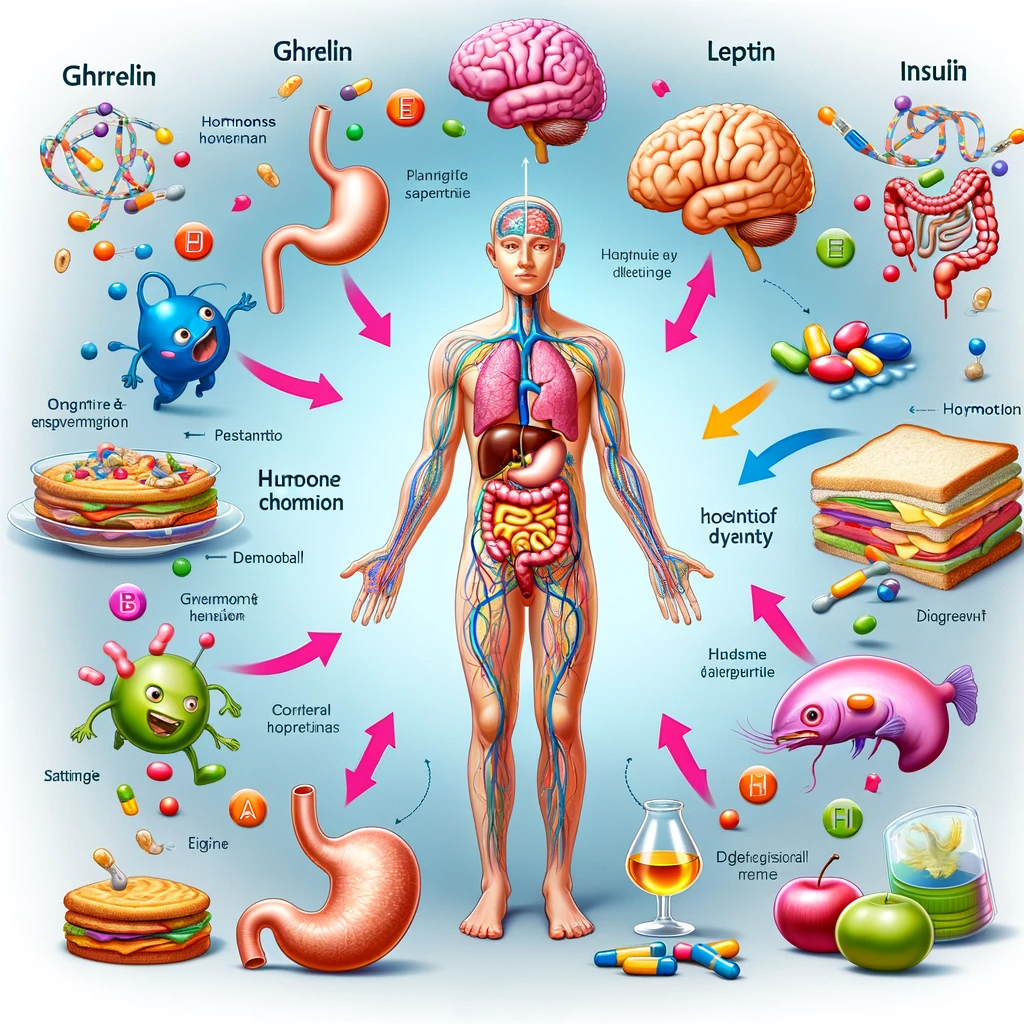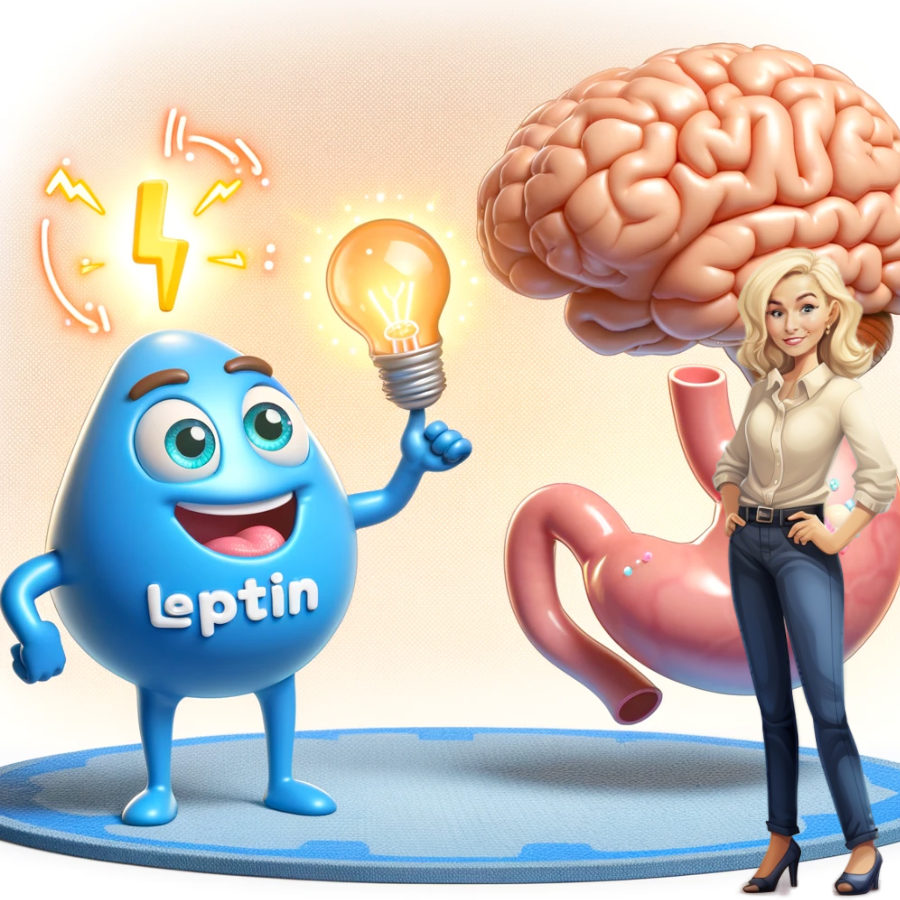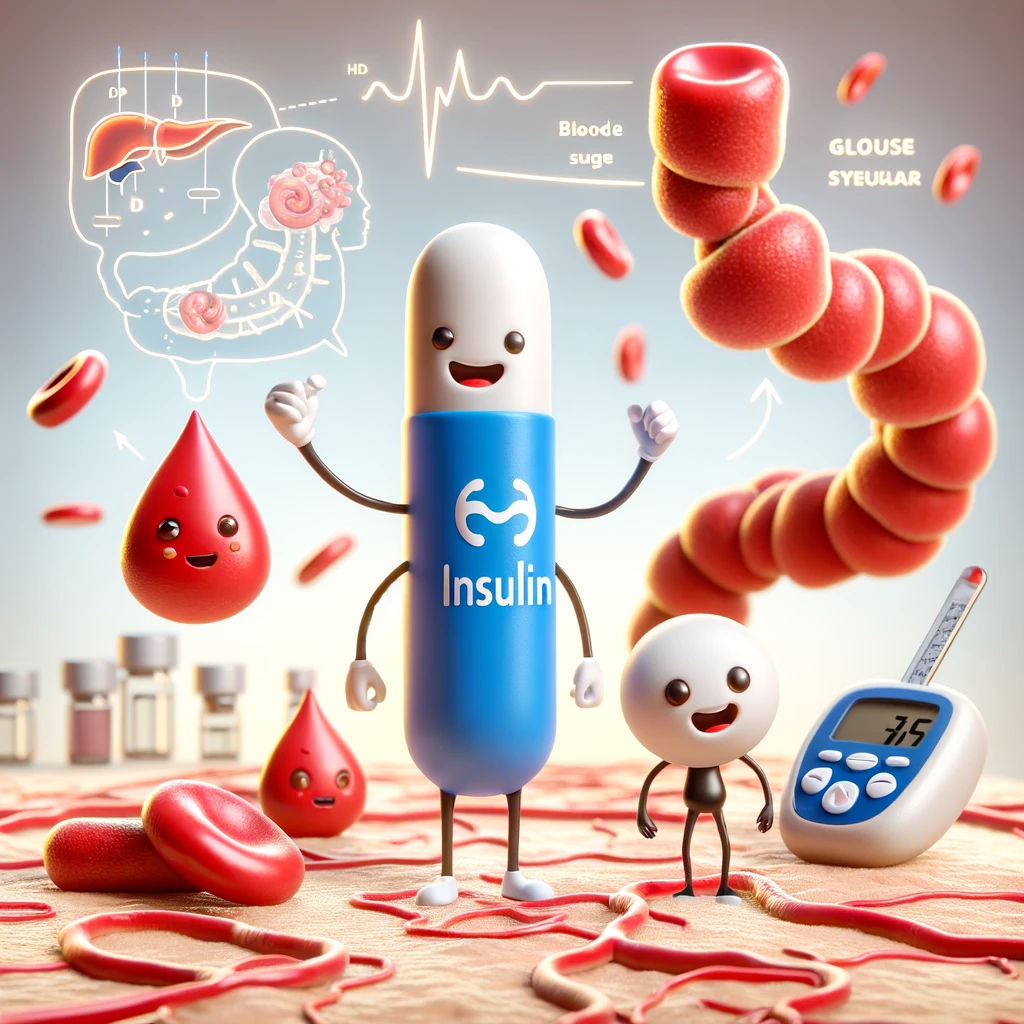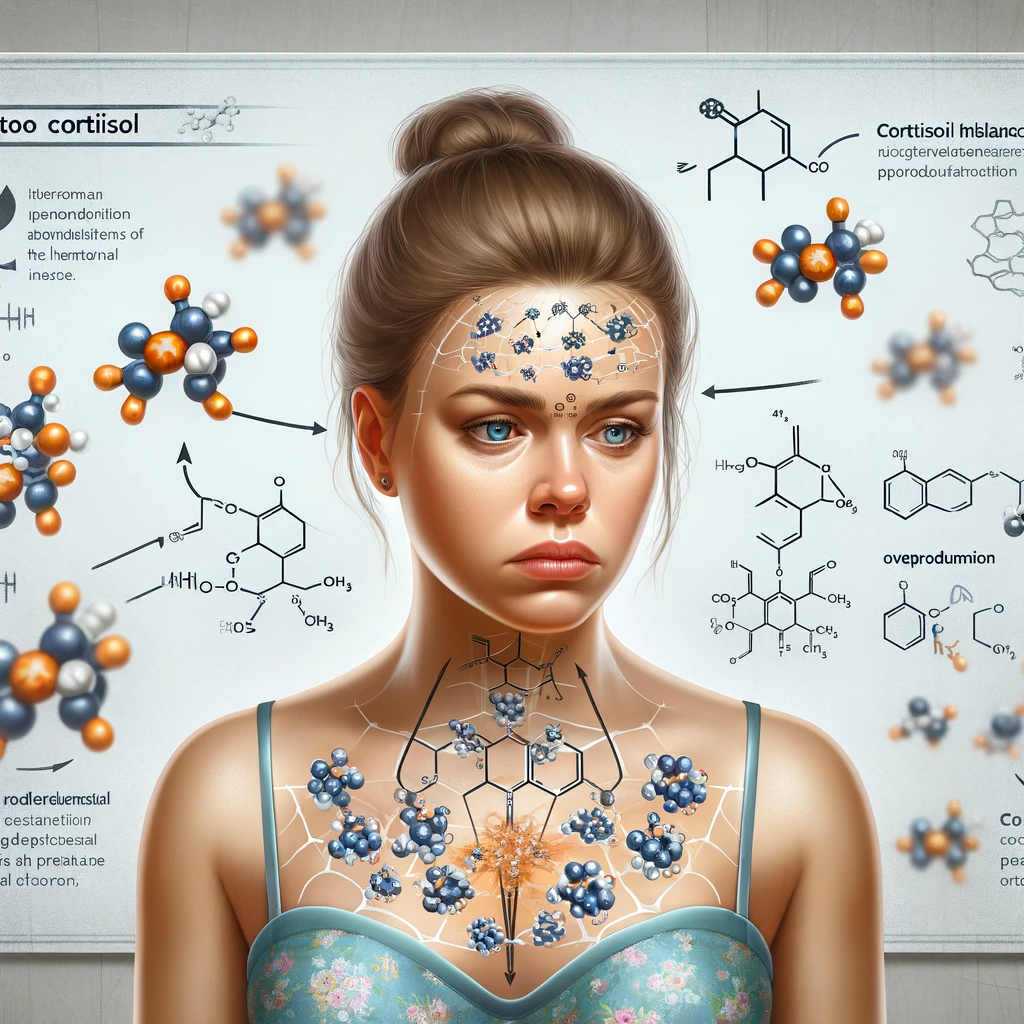While diet and exercise are certainly important factors in achieving weight loss, there's another element that often goes overlooked: hormones. In fact, the role of hormones in weight management is a complex and fascinating topic that scientists are still working to fully understand.
When your hormones are out of balance, it can lead to overeating and weight gain. Additionally, hormones like insulin and cortisol can affect metabolism and fat storage, making it harder to lose weight even when you're eating a healthy diet and exercising regularly.
Despite the complexity of this topic, and the sheer frustration, there are some practical steps that you can take to manage your hormones and support healthy weight loss. This is possible by understanding the role that hormones play in your body. And by making lifestyle changes that support hormonal balance, you can achieve your weight loss goals in a sustainable and healthy way.
We'll explore hormones and weight management, discussing how they affect appetite, metabolism, and fat storage and their impact on weight loss.

Check out our other articles about fiber and weight loss
Understanding Hormones
Watch the video on how your hormones work for a baseline of knowledge
Role of Hormones in Body
Hormones are chemical messengers that regulate various bodily functions, including metabolism, appetite, and fat storage. You might be wondering but where do they come from? Let's take it a step at a time.
They are produced by the endocrine glands and travel through the bloodstream to reach their target cells. Hormones play a crucial role in maintaining the body's internal balance, also known as homeostasis.
Homeostasis Knowledge Nugget
The state of balance within all physical systems needed for a body to function properly and survive is homeostasis. In a state of homeostasis, body levels are constantly adjusting in response to changes outside and inside the body. Some of the systems that constantly adjust to stay at normal levels are:
- blood sugar
- blood pressure
- energy
- acid levels
- oxygen
- proteins
- temperature
- hormones
- electrolytes
Example of Homeostasis
Any bodily system in dynamic equilibrium reaches a steady state or balance that can withstand external forces of change. When this system is disturbed, regulating devices built into the body respond to create a new balance.
One process is called feedback control. All processes of implementation and coordination of function are examples of homeostasis. This occurs whether facilitated by the nervous system, hormonal system, or electrical currents.
An easy example of regulation via homeostasis is a mechanical system of action that controls the temperature in the room: i.e., a thermostat. The center of the thermostat is a metallic strip that can sense temperature changes and react by controlling an electric circuit.
When the room is cold, the furnace is activated by the thermostat, and the temperature will then go up. At the time when the preset level of the thermostat circuit is reached, the furnace stops, and the temperature will remain the same or go back down.
There are several hormones that play a role in weight management. Leptin, for example, is a hormone produced by fat cells that signals the brain to reduce appetite and increase energy expenditure.
Ghrelin, on the other hand, is a hormone produced by the stomach that stimulates appetite and promotes fat storage. Insulin is another hormone that regulates blood sugar levels and promotes fat storage.
Hormones and Appetite
As we explore the role of hormones in weight management, it is important to understand how they affect appetite. Two hormones, ghrelin and leptin, play a significant role in regulating hunger and satiety.

The Hunger Hormone
Ghrelin is produced in the stomach and signals the brain to increase appetite. It is often referred to as the "hunger hormone" because it stimulates hunger and food intake. Ghrelin levels increase before meals and decrease after meals, indicating its role in regulating appetite.

Studies have shown that ghrelin levels are influenced by factors such as sleep, stress, and exercise. Lack of sleep and high-stress levels can increase ghrelin levels, leading to overeating and weight gain. On the other hand, exercise has been shown to decrease ghrelin levels, reducing appetite and promoting weight loss.
The Satiety Hormone
Leptin, produced by fat cells, signals the brain to decrease appetite and increase energy expenditure. It is often referred to as the "satiety hormone" because it promotes feelings of fullness and satisfaction after meals.

Ghrelin and leptin play important roles in regulating appetite and can significantly impact weight management. Understanding how these hormones function can provide insight into effective weight loss strategies.
Hormonal Impact on Metabolism
Metabolism refers to the chemical processes that occur in the body to maintain life. Hormones play a vital role in regulating metabolism, including the rate at which the body burns calories. Thyroid hormones, for example, regulate the body's metabolic rate by controlling the production of heat and energy. Adrenaline and cortisol are other hormones that affect metabolism by increasing the body's energy expenditure during times of stress.
Hormones also influence the way the body stores and uses energy. For example, insulin promotes the storage of glucose as fat, while glucagon promotes the breakdown of stored fat for energy. Growth hormone, which is produced by the pituitary gland, stimulates the breakdown of fat for energy and promotes the growth of muscle tissue.
In conclusion, hormones play a crucial role in weight management by regulating appetite, metabolism, and fat storage. Understanding how hormones work can help individuals make informed decisions about their diet and lifestyle to achieve their weight loss goals.
Hormones and Fat Storage

Olivia, overloaded with insulin resistance
As we discussed earlier, hormones play a significant role in weight management. In this section, we will explore how hormones affect fat storage in the body.
The Fat Storage Hormone
Insulin is a hormone produced by the pancreas, and it is responsible for regulating our blood sugar levels.

When we eat carbohydrates, our body breaks them down into glucose, which enters our bloodstream. Insulin is then released by the pancreas to help transport glucose from the bloodstream into our cells, where it can be used for energy.
However, when we consume too many carbohydrates, our body produces too much insulin, which can lead to insulin resistance. Insulin resistance means that our cells become less responsive to insulin, and the pancreas has to produce more and more insulin to get glucose into our cells. This excess insulin can then lead to fat storage in the body, particularly in the abdominal area.
To prevent excess insulin production, it is important to limit our intake of refined carbohydrates, such as white bread, pasta, and sugary drinks. Instead, we should focus on consuming complex carbohydrates, such as whole grains, fruits, and vegetables, which are digested more slowly and do not cause a rapid spike in blood sugar levels.
Stress Hormone
Cortisol is a hormone produced by the adrenal glands, and it is often referred to as the "stress hormone." Cortisol is released in response to stress, and it helps our body cope with stress by increasing blood sugar levels and suppressing the immune system.
However, when cortisol levels are chronically elevated, it can lead to increased fat storage, particularly in the abdominal area. This is because cortisol stimulates the production of insulin, which, as we discussed earlier, can lead to fat storage in the body.

To reduce cortisol levels, it is important to manage stress levels through techniques such as meditation, deep breathing, and exercise. It is also important to get enough sleep, as lack of sleep can lead to increased cortisol levels.
Hormones play a crucial role in fat storage in the body. By understanding how hormones such as insulin and cortisol affect fat storage, we can make lifestyle changes to promote weight loss and improve our overall health.
Hormonal Balance and Weight Loss
As I mentioned earlier, hormones play a crucial role in weight management. Hormonal imbalances can lead to weight gain, while hormonal balance can support weight loss. In this section, I will discuss the impact of hormonal balance on weight loss and strategies for achieving hormonal balance.
Strategies for Hormonal Balance
There are several strategies for achieving hormonal balance, including: Eating a balanced diet,Practicing stress-reducing techniques, Sleep Hygiene and regular exercise









Eating a balanced diet,Practicing stress-reducing techniques, Sleep Hygiene and regular exercise
Achieving hormonal balance is essential for weight loss. By implementing strategies like eating a balanced diet, managing stress, getting enough sleep, and exercising regularly, you can support hormonal balance and promote weight loss.
The journey of weight loss encompasses much more than calorie counting and exercise regimes. As we've explored, hormones like leptin and ghrelin play pivotal roles in regulating appetite, metabolism, and fat storage. These biochemical messengers can either aid or hinder our weight management efforts, highlighting the importance of a hormonally balanced approach to losing weight. Factors such as stress, sleep quality, and certain health conditions can significantly impact this delicate balance, making it essential to consider our overall health and lifestyle when striving for weight loss. By understanding and respecting the power of our hormonal makeup, we can adopt more effective, sustainable strategies for weight management. This holistic approach not only helps in achieving desired physical outcomes but also promotes overall health and well-being, guiding us towards a healthier, more Vibrant and balanced life.
Until Next, Stay Vibrant!





